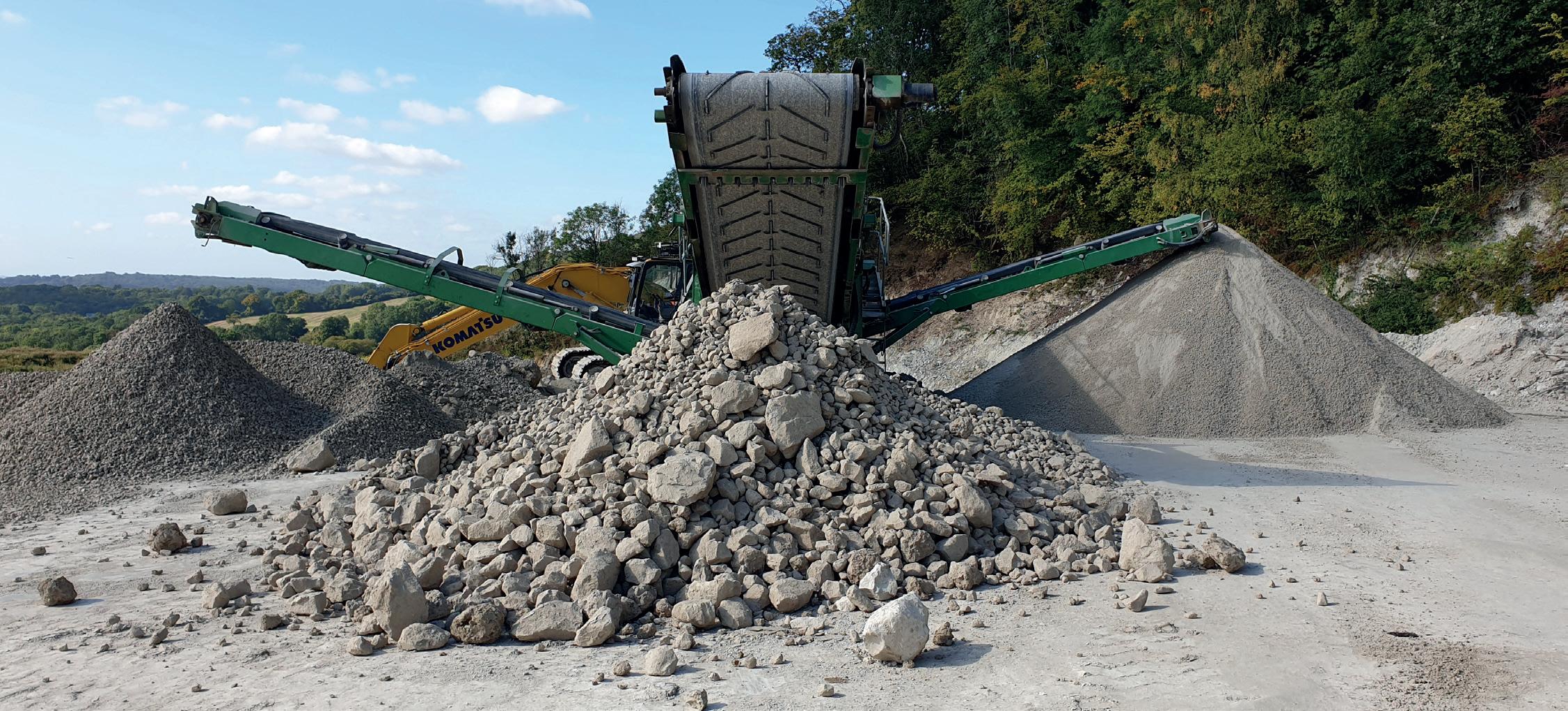
6 minute read
One year on for the Rural Policy Group
ONE YEAR ON
The Rural Policy Group (RPG) came to the fore in 2020 as the world shifted dramatically in response to the changes forced on it by the coronavirus crisis.
The group was founded in 2019 to support and promote the farming community and the wider rural economy, but it came of age last year, launching the Rural Economic Development (RED) talks that helped harness opinion and share ideas as the Covid-19 pandemic caused worldwide social and economic disruption and Brexit loomed.
RPG chairman Mark Lumsdon-Taylor told South East Farmer that it was a conversation with Sarah Calcutt, Executive Chair of the National Fruit Show, that sparked the idea of a series of webinars designed to provide rural business owners with the information, business support and hope they needed to weather the storm.
“At that point we could not have known how quickly it would grow,” he said. No-one could. In the first year, more than 1,000 businesses from 25 countries worldwide attended the talks in total. Here, Mark tells the story:
“Since the first RED Talk took place in April 2020, lessons from the pandemic and lessons from Brexit have reshaped how many people view the world. Farmers have always known that their industry is a subset of the environment; now the rest of the economy is waking up to the fact that we cannot make a healthy profit without healthy people and a healthy ecosystem.
“RPG evolved to lead this systems-thinking approach from a rural-first perspective. The rural economy is the engine of sustainable growth, but it needs support to achieve change, and so we integrated economic social governance (ESG) and health and social care into our vision for a greener, more equitable economy led by a respected and profitable food and farming industry.
“Together with our guest speakers, drawn from politics, science, business, medicine, policy and academia, we have tackled topics such as agritech with Neil Parrish, Chair of the EFRA Select Committee, food security with Luke Pollard, Shadow Environment Minister, and mental health with Sir Norman Lamb, formerly both a health and business minister. In July we turn our focus to the electrification of farm vehicles as part of the journey to Net Zero.
“The talks are getting rural business heard by policymakers in Parliament and change-makers in industry. We also lobby hard to raise the importance of rural communities and the rural economy in government policy-making; rural life has too long been underfunded, undervalued and underestimated.
“Last year we submitted a well-received report to government highlighting the concerns of the farming community. It addressed issues around food security, profit share within the supply chain, consumer behaviours around food, technological innovation and the types of government support the industry needs.
“What it all boils down to, however, is food > Mark Lumsdon-Taylor
pricing, and this became one of our central pillars. How we fix the food system so it is profitable for all and provides the country with an affordable nutritious diet is something we will continue to research, debate and lobby for.
“None of this would have been possible without our network of partners and members of the advisory council, who give their time and expertise enthusiastically in support of our shared aims: a thriving, well-respected rural economy driving a sustainable, equitable UK plc.”
Mark Lumsdon-Taylor is a senior corporate consultant for MHA MacIntyre Hudson & the seconded chief financial officer for a leading fresh produce food manufacturer. He chairs the Rural Policy Group in addition to a number of non-executive appointments in London and the South East.
JUST A LITTLE SCRATCH…
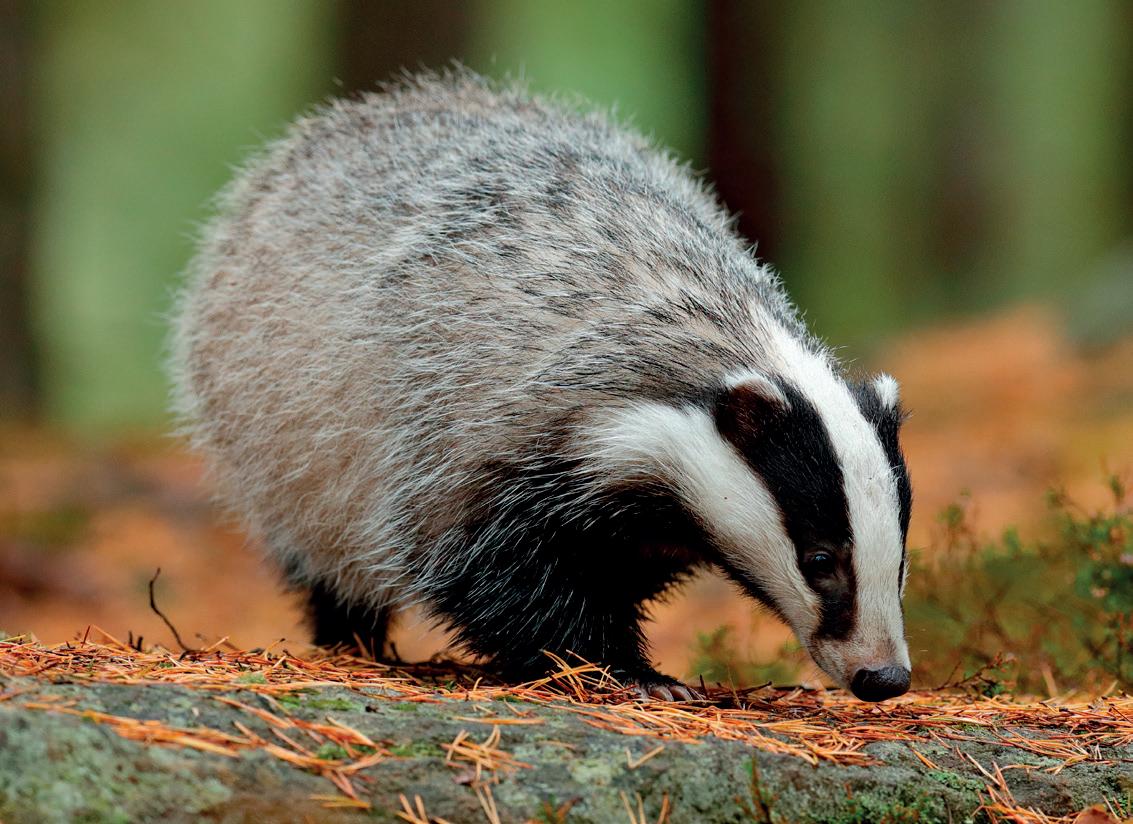
Farmers in East Sussex will be asked to vaccinate badgers as part of a major, large-scale badger vaccination trial.
DEFRA announced at the end of May that the government had awarded £2.27m of funding to enable farmers to administer the vaccinations over an area of the South Downs spanning 250sq. km.
The government says the results of the five-year trial will help inform how it rolls out future vaccination schemes at scale across England, as part of its plans to phase out badger culls.
The licensing of new intensive badger culls, which DEFRA says have effectively helped reduce bovine tuberculosis rates (bTB) by half in certain areas, will end after 2022, while existing cull licences could be cut short after two years in cases where this is supported by scientific evidence.
Trials of a bTB cattle vaccine are expected to begin this summer, with the aim of enabling a vaccine to be rolled out by 2025. In the last year, more than 27,000 cattle in England were slaughtered to tackle the disease.


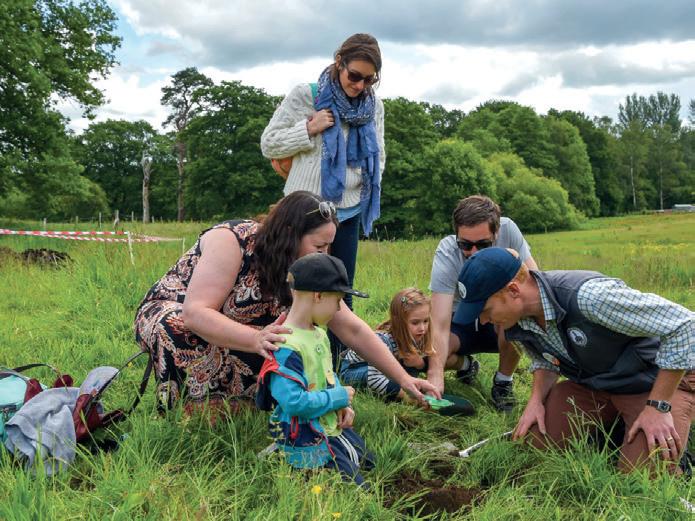


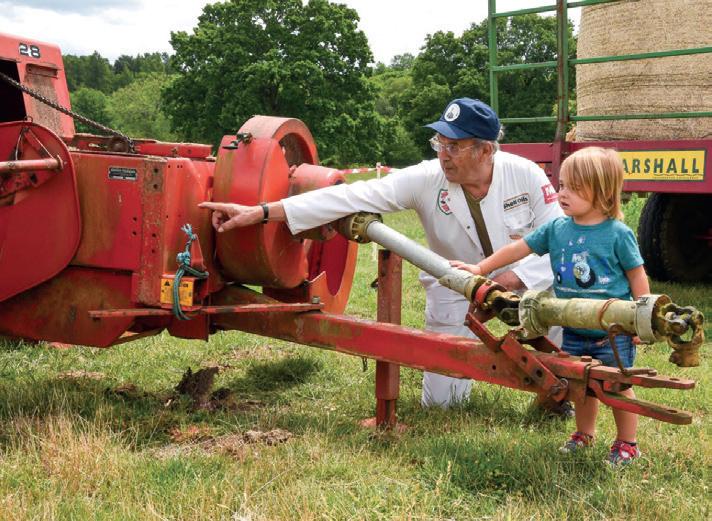



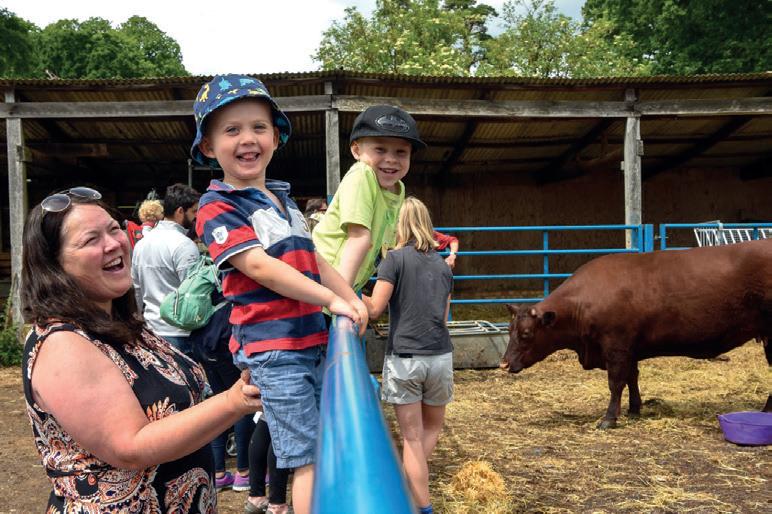
REGENERATE AND RESTORE THEME
The Hampton Estate in Surrey will be illustrating how farming fi ts with the environment when it off ers tree planting, worm digging and forest bathing as its contribution to the 15th LEAF Open Farm Sunday (LOFS), a celebration event that has been organised by Linking Environment And Farming every year since 2006.
Once a dairy farm, the Hampton Estate now focuses on grass-fed beef, hops and forestry, together with let arable land, and – from July – a pop-up, off -grid campsite.
With environmental and social sustainability at the heart of the Hampton ethos, their Open Farm Sunday event on 27 June will highlight a ‘regenerate and restore’ theme.
It is being hosted by Molly Biddell, who, as an Ambassador for LEAF Open Farm Sunday, is looking forward to helping her parents, Bill and Bridget, run the event at Hampton Estate for the third time.
“We love connecting people with what we do, and we’ve always done it in some way or other, from bringing schools on to the farm to selling our beef direct from the farm gate,” she said.
“We are one of the closest LOFS farms to London, and it’s great to welcome people from the city. This year has created a perfect opportunity to engage with the public. There’s heightened appreciation of local communities, of food and green spaces, of the planet. Visiting local farms will be viewed more than ever as really important and interesting.”
Molly will be recreating a popular activity from 2019, a woodland walk with a quiz to identify diff erent tree species. At the end, visitors have the chance to plant a tree as part of the Queen’s Green Canopy Project and to grow the LOFS woodland that was started in 2019. There will also be a forestry demonstration and the chance to ask the forestry team questions.
Other activities include a wildlife meadow for birdwatching, digging for worms, meeting goats, chickens and the Hampton cows, question time for the local vet, a gun dog demonstration and learning about the estate’s pasture-fed system.
Oxted Quarry
Supplying rock chalk and agricultural lime in Surrey and South East England
75mm down Screened chalk at a consistent size, suitable for many different uses in the building and construction trades
Agricultural Lime (20mm down)
A fundamental component in agriculture for maximising yields and profitability in arable farming. A flintless composition makes this perfect for cattle bedding
Lump chalk (as dug)
Varied in size and excellent value. Useful in a range of building and construction applications
